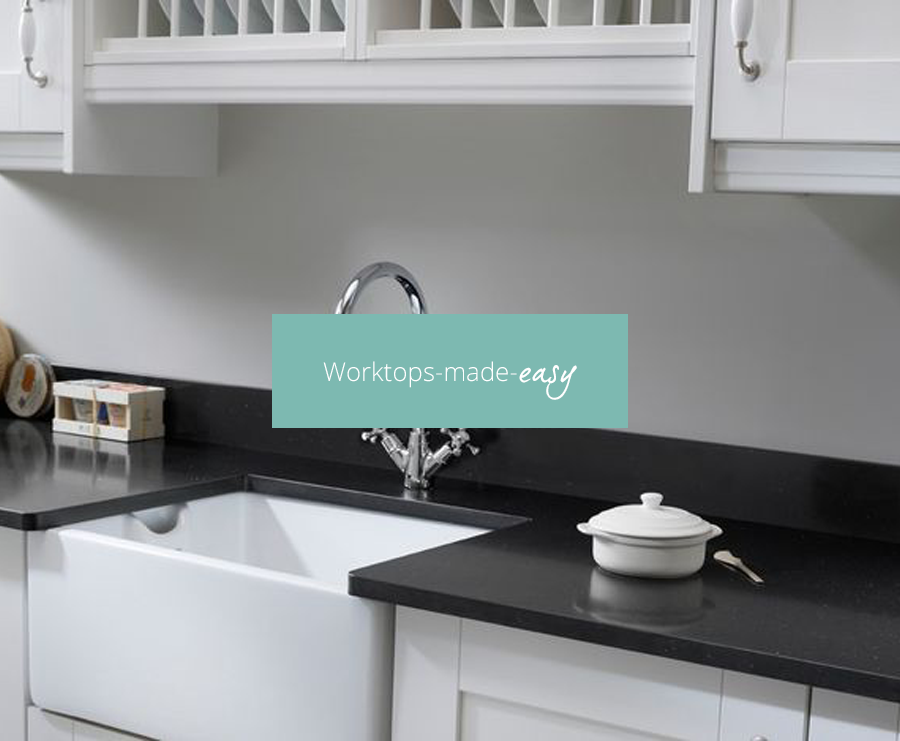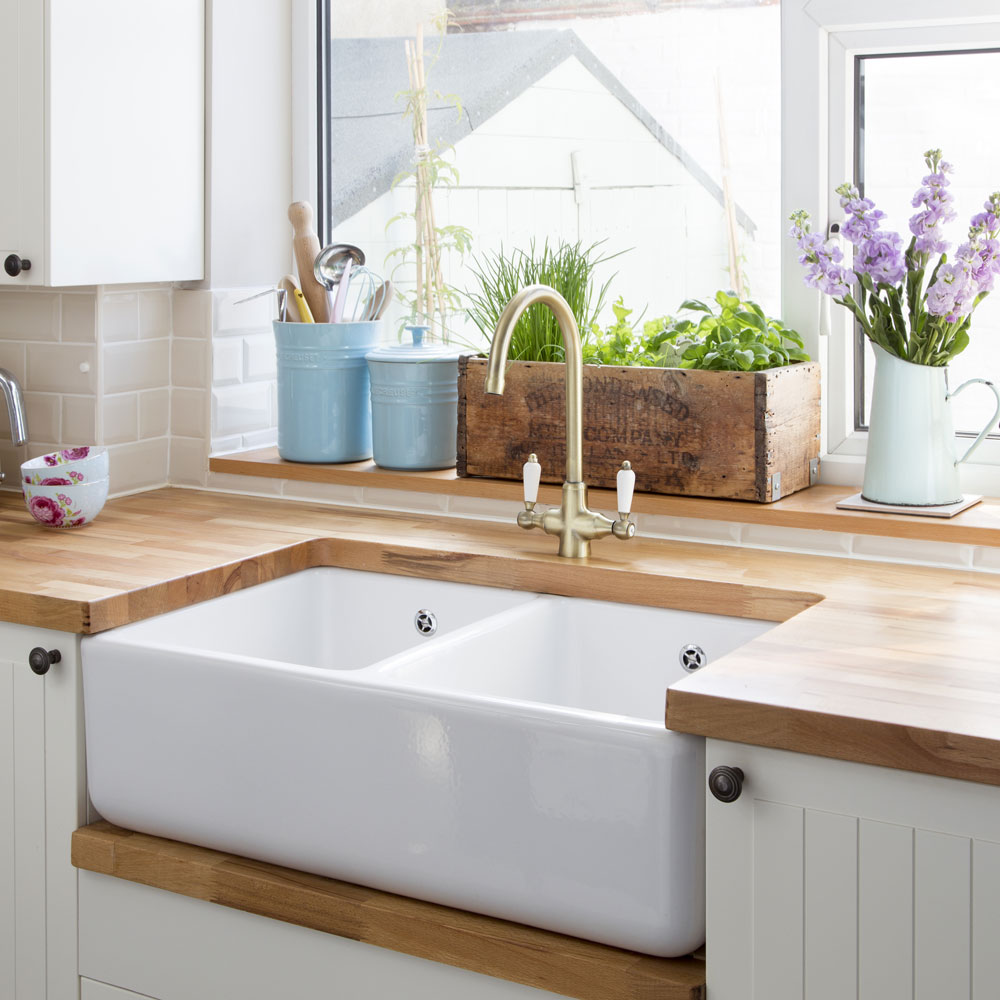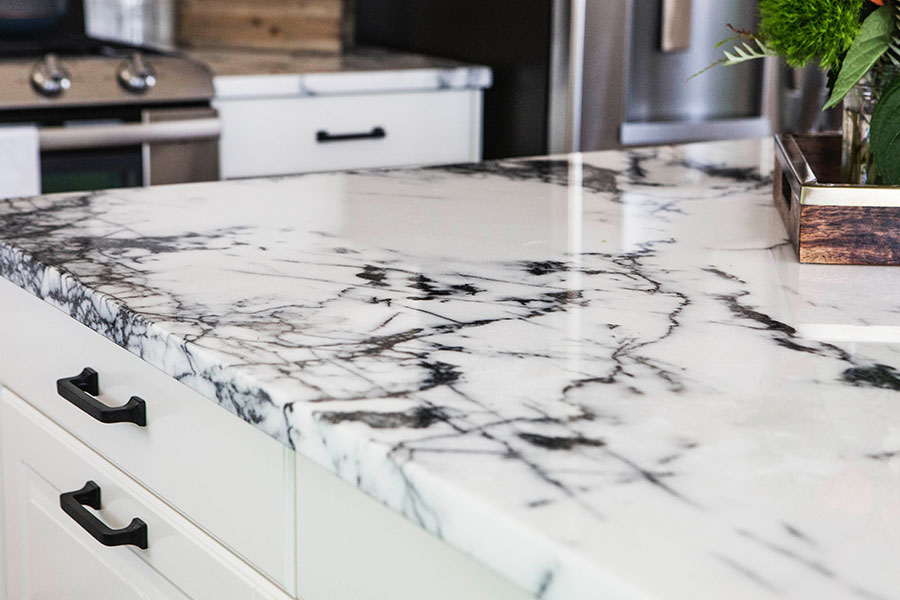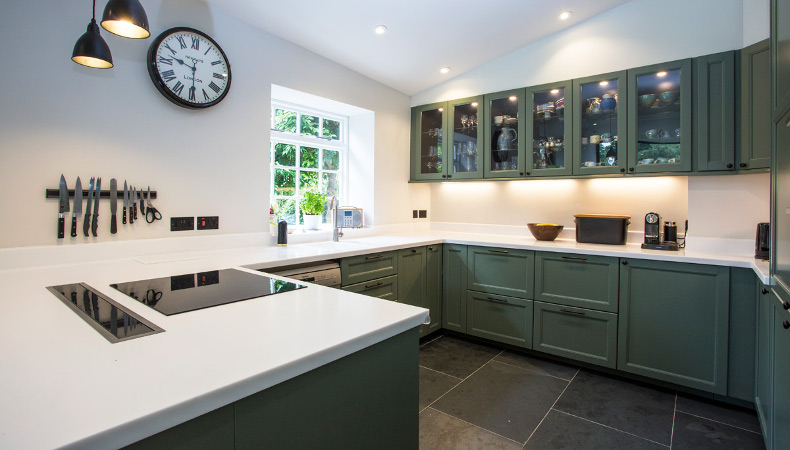Worktops-made-easy
When it comes to refurbishing or renovating a kitchen inevitably there is a lot to think of – units, flooring, lighting, appliances, colour schemes… and then, of course, there’s a worktop to choose.

Initially this can seem quite overwhelming. As consumers, we are far more at ease choosing colours, appliances, even lighting – after all, these decisions are ones we face far more regularly than selecting a worktop. Apply the wrong colour, it can easily be re-painted. Choose the wrong lighting or appliance, costly, but it can be replaced. Choose the wrong worktop and it makes life a little harder!
Listed below are the main benefits and potential drawbacks of worktop options available, helping you select the right material to suit you, your space and your budget.
Laminate:
- Widely available and very low maintenance
- Available in many finishes, replicating the look of solid wood, tiled finishes etc
- Quick and easy to fit even as a DIY project
- Easy to look after only needing to be wiped down with a non-abrasive detergent
- Can scratch easily and cannot be sanded down
- Can warp when in contact with standing water
- Prices start from around £30 per metre
Solid Wood:
- Oak and walnut tend to be favoured for longevity. Beech and birch are lighter bringing contrast to darker cabinets
- Extremely durable, natural and can be recycled
- Can be sanded down to repair scratches
- Oak requires oiling regularly until it matures
- Specialist installation is advised and on-going maintenance is recommended
- Prices start from around £150 per metre

Stainless Steel:
- An alloy of iron that has been treated with chromium, stainless steel generally remains rust-free
- Popular in professional kitchens, highly resistant to corrosion and heat
- Non-porous therefore most hygienic of all worktop surfaces
- Easy to maintain using mild non-abrasive detergent
- Can be prone to scratches and dents
- Surfaces can get very hot if pans are left on them
- Prices start from around £200 per metre
Stone:
- Granite, quartz and marble most popular options each with distinctive hues and veins
- Timeless if looked after - can last many years
- Granite and quartz resistant to stains and scratches. Marble softer and can be prone to marking
- Granite and quartz need to be sealed when installed and lower maintenance. Marble needs regular wiping down
- Depending on quality of stone, granite and quartz can be very expensive
- Prices start from around £225 per metre

Composite:
- Blend of minerals and acrylic polymers such as Corian, Dekton and Caesarstone
- Can be easily moulded to suit bespoke shapes
- Durable, long-lasting requiring little maintenance
- Scratches can be easily repaired
- Specialist installation necessary
- One of most expensive worktop options
- Prices start from around £350 per metre

Concrete:
- Made from a mix of cement and other aggregates, can be pre-cast or poured in-situ to create bespoke surfaces
- Hard-wearing, concrete increases in durability over time
- Shows off stains and can crack
- Specialist installation necessary and takes approximately 30 days to cure completely
- Needs to be sealed and resealed every few years
- Prices start from around £500 per metre

The Compare Network
Copyright – Insight Retail Group Ltd 2025 All rights reserved